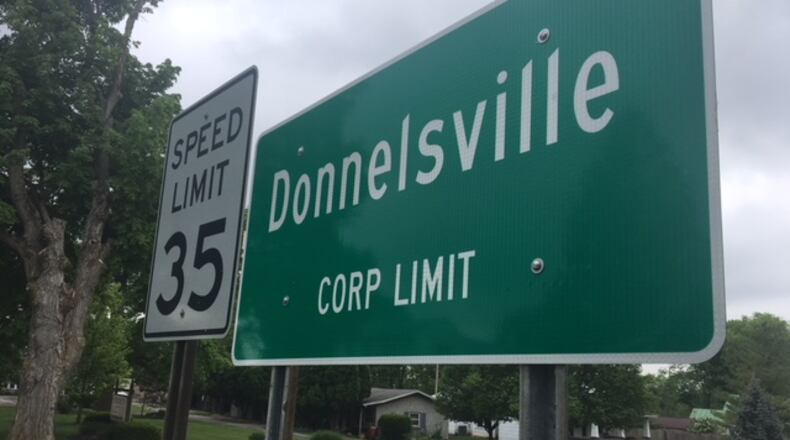“I don’t drink it,” she said “We use it for bathing and stuff, but we don’t drink it.”
Chamberlain said she spends close to $30 on bottled water every time she goes to the grocery store — which in her case, would total close to $800 for year.
She said her cats have been sick from drinking tap water.
EARLIER COVERAGE: Donnelsville considers public water system because of contaminants
Chamberlain isn’t alone. Close to 20 percent of Donnelsville residents also live with systems to filter out contaminated well water.
But maybe not for long.
The EPA recently proposed adding the village to its Superfund Priority Cleanup list.
If approved, Donnelsville Mayor Robert Cornwell said funding would be used to connect the village with Park Layne’s public water system.
“The only solution to this problem after everyone has looked at it – the geologists and everyone else – is municipal water,” he said.
The problem came to light in 1990. A cancer-causing chemical called tetrachloroethylene was found in the village’s water supply and caused the elementary school’s wells to close.
Larry Shaffer, Director of Environmental Health with the Clark County Combined Health District said the substance is usually the result of manufacturing contamination.
2010 REPORT: Solvent found in Donnelsville wells poses health risk
“TCE is a chemical that was commonly used for many years in dry cleaners and factories and other kinds of places that worked with metal and used it as a degreaser,” Shaffer said.
According to the EPA’s website, long-term exposure to the chemical can also cause neurological impairments as well as adverse effects in the kidney, liver and immune system, as well as have an impact on development and reproduction.
The exact source of the contamination has never been formally identified.
If selected, funding would also go towards finding the cause and cleaning up the existing problem.
Donnelsville has implemented a number of quick fixes over the years — but nothing has fully solved the problem.
“(The residents have) a filtration system on their water systems on the contaminated wells but that’s just a band aid,” Cornwell said.
Cornwell said he’s hopeful the village will be placed on the list based on the limited cost for the project — he estimated it between $6 million and $7 million because of Donnelsville’s small population.
Chamberlain said she likes the idea of a clean public water system — unless she has to pay for it.
Cornwell said the EPA could make a decision soon.
About the Author
